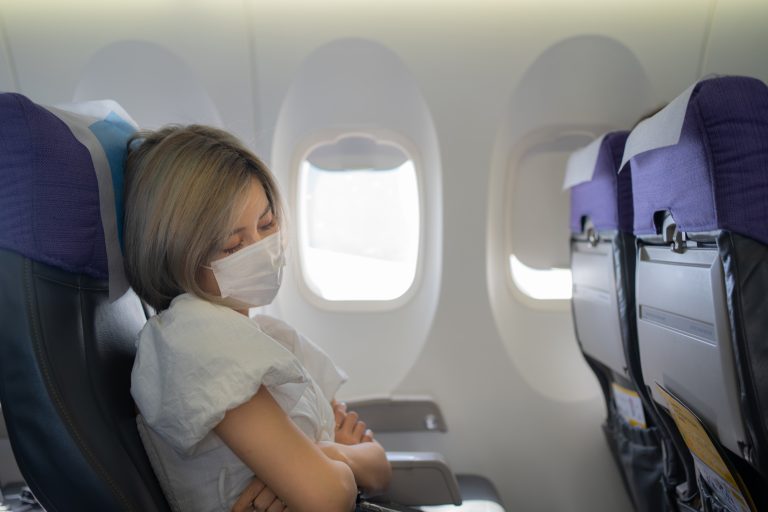As summer approaches, many Brits are eagerly preparing for international travel. However, jet lag can significantly impact the start of your holiday, affecting your ability to enjoy your time abroad. According to WebMD, jet lag affects 60-70% of long-haul flyers. Ashley Hainsworth, sleep expert and founder of Bed Kingdom, offers practical tips to minimise its effects.
Adjust Your Sleep Schedule Before Departure
One of the best ways to combat jet lag is to adjust your sleep patterns before you travel.If you’re travelling west, gradually shift your bedtime and wake-up time to earlier in the days before your trip. Conversely, if you’re travelling east, aim to sleep and wake later. Making these changes gradually, by one to two hours each night, helps your body adjust more smoothly to the new time zone.
Use Sleep Accessories During the Flight
If your flight coincides with nighttime at your destination, try to sleep on the plane. Sleeping masks, earplugs, and travel pillows can improve your comfort during the flight. Additionally, listening to soothing music or white noise may help. Ensure you have headphones and pre-download any audio you wish to listen to during the flight.
Stay Active During the Flight
Walking around and stretching your legs during the flight can help reduce jet lag symptoms. This practice maintains wakefulness, reduces muscle stiffness, and lowers the risk of blood clots. Aim to move every hour or so, especially on long-haul flights, to keep your circulation active and improve your overall comfort.
Time Your Light Exposure
Jet lag disrupts your circadian rhythm. Exposure to natural light upon arrival can help reset your internal body clock. If it’s daytime at your destination, stay outdoors and avoid artificial lighting as much as possible. This practice helps you adjust to the new time zone more effectively and prevents excessive daytime sleep, which can further disrupt your schedule.
Take Strategic Naps
If you’re very tired upon arrival, short naps can be helpful. Limit naps to 45 minutes to avoid interfering with your nighttime sleep. Early-day naps can provide a much-needed energy boost without significantly impacting your ability to sleep at night.
Limit Alcohol and Caffeine, and Stay Hydrated
Avoid excessive alcohol consumption, especially before bedtime, as it can disrupt sleep. Caffeine can help align your sleep schedule if consumed during the day but avoid it in the evening as it may delay sleep onset. Balancing these beverages with plenty of water will help combat dehydration and reduce jet lag symptoms.
Consider Melatonin Supplements
Melatonin, a hormone that regulates sleep, can be helpful in resetting your circadian rhythm. While melatonin can be bought over-the-counter in the US, it requires a prescription in the UK. Consult your GP before use, as melatonin can interact with other medications and cause side effects.
Plan Light Activities for the First Days
To ease into your holiday, schedule low-energy activities for the first few days. Gentle activities, such as relaxing by the pool, exploring local sights, or enjoying your hotel’s amenities, allow you to adapt gradually to the new time zone without overwhelming yourself.
By following these expert tips, you can mitigate the effects of jet lag and make the most of your travel experience.


